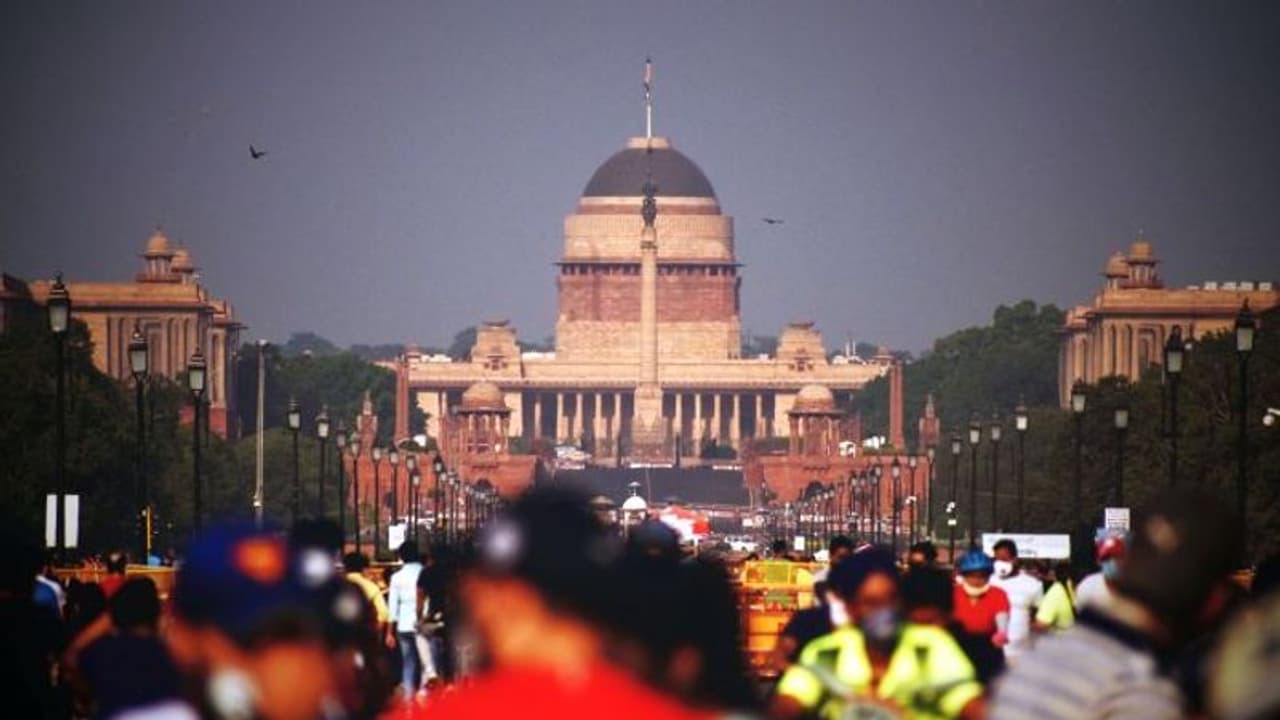Ballot boxes have already reached Parliament House and state legislative assemblies where the polling will happen. The counting of votes will happen at Parliament House on July 21. The new President will take be administered the oath of office on July 25.
The voting to elect the 15th President of India will happen on Monday with over 4,800 elected MPs and MLAs ready to cast their vote either in favour of National Democratic Alliance candidate Droupadi Murmu or Opposition's Yashwant Sinha.

At present, Murmu seems to have a clear edge over Sinha. Experts say that over 60 per cent of votes could be cast in her favour.
Also Read: Special pen to mark vote in President election; here's all you need to know
Ballot boxes have already reached Parliament House and state legislative assemblies where the polling will happen. The counting of votes will happen at Parliament House on July 21. The new President will take be administered the oath of office on July 25.
Murmu's vote share is likely to reach nearly two-thirds with the support of regional parties such as Biju Janata Dal, YSR Congress Party, Bahujan Samaj Party, All India Anna Dravida Munnetra Kazhagam, the Telugu Desam Party, Janata Dal-Secular, Shiromani Akali Dal, Shiv Sena and the Jharkhand Mukti Morcha. Out of a total of 10,86,431 votes, the NDA nominee now has over 6.67 lakh votes.
If elected, Murmu will be the first tribal community woman to occupy the top constitutional post.
Also Read: Who is Draupadi Murmu, the tribal leader in race to be President?
The Electoral College
The president is elected through the system of proportional representation. The electoral college, comprising elected MPs and members of state legislative assemblies, takes part in the election process. Members of legislative councils and nominated MPs and MLAs are not entitled to vote.
The value of the member of Parliament's vote has gone down from 708 to 700 in this presidential poll. That's because there is no legislative assembly in Jammu and Kashmir.
The value of each MLA's vote differs from state to state. In Uttar Pradesh, each MLA's vote is valued at 208, followed by 176 in Tamil Nadu and Jharkhand. In Maharashtra, it is 175. In Sikkim, the vote value per MLA is seven, while it is eight in Mizoram.
Also Read: 10 things elected representatives should keep in mind while voting for India's next President
The Election Process
The election is held according to the system of proportional representation, which means every elector can mark as many preferences as candidates contesting the election.
The elector can mark his or her preferred candidate by marking them 1, 2, 3 and so on against the candidates' names in order of preference, in the ballot paper's column 2. This is exactly why electronic voting machines are not used in this election, as they are based on a technology where they work as aggregators of votes
The same process is undertaken during voting to elect the vice president, Rajya Sabha members and in legislative council elections.
According to Election Commission's directions, while MPs will get a green-coloured ballot paper, the MLAs will get a pink ballot paper to cast a vote. Separate colours assist the returning officer in ascertaining the value of each MP and MLA's vote.
The Election Commission has issued a specially designed pen with violet ink to allow voters to mark their ballot papers in the presidential poll and maintain voting secrecy.
Photograph: Shubham Sharma/Unsplash
